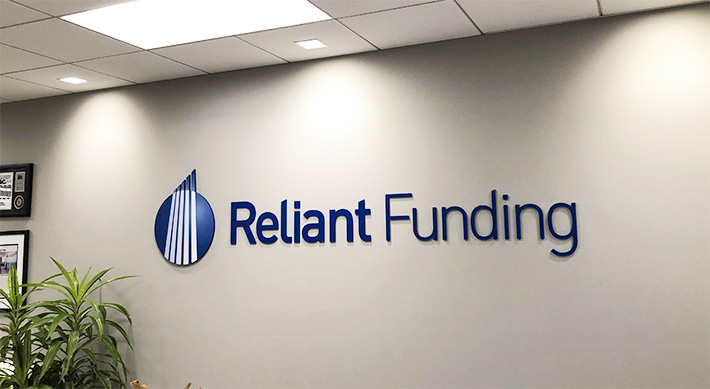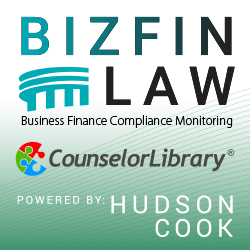Archive for 2023
The FTC Proposes to Ban Employment Non-Compete Clauses
February 6, 2023As also published in Leasing News
To welcome in the new year in its inimitable way, the Federal Trade Commission (“FTC”) proposed new rules that would ban employers from imposing non-compete on their employees. If passed, the new rule would provide that it is an “unfair method of competition for an employer to enter into or attempt to enter into a non-compete clause with an employee, to maintain a worker with a non-compete clause, or, under certain circumstances, to represent to a worker that the worker is subject to a non-compete clause.”
Per the FTC, a non-compete clause is a “contractual term between an employer and a worker that typically blocks the worker from working for a competing employer, or starting a competing business, within a certain geographic area and period of time after the worker’s employment ends.” As such, these clauses have historically been considered appropriate subjects for scrutiny under the nation’s antitrust laws such as the Sherman Act.
The prospective change in federal law was prompted by what the FTC calls “natural experiments” by virtue of new legislation in several states that limit or ban non-competes. Non-competes are either entirely or largely unenforceable as against public policy in California, North Dakota, the District of Columbia, and Oklahoma. Maine, Maryland, New Hampshire, Rhode Island, Washington and most recently, Colorado, have severe limitations on non-competes. The “experiments” in these states apparently prompted President Biden, in July of 2021, to issue his “Promoting Competition in the American Economy Order”, a broad Executive Order that purports to encourage innovation and competition in the American workplace. The Order asks the FTC to “curtail the unfair use of non-compete clauses and other clauses or agreements that may unfairly limit worker mobility.” Here is what the Executive Order looks like:
https://www.whitehouse.gov/briefing-room/presidential-actions/2021/07/09/executive-order-on-promoting-competition-in-the-american-economy/
The FTC has sought public comments to the proposed rule. The comment period ends on March 6, 2023. Thereafter, the new law may take effect as soon as 180 days following the comment period. Instructions for sending comments are found in the Notice of Proposed Rulemaking.
https://www.ftc.gov/system/files/ftc_gov/pdf/p201000noncompetenprm.pdf
One of the upsides of a non-compete is that it helps protect trade secrets and IP, but this can be achieved through a confidentiality or non-disclosure provision. It also keeps former employees from taking your business model and creating a competitive business, which may be difficult to achieve otherwise. However, do you really want to retain an employee who wants to leave simply because he signed an agreement that says he or she cannot compete with you?
The downside of non-competes is that, to some, they violate public policy by restricting the mobility of workers. They are also limited in scope, and expensive to enforce.
What does it mean to you? The general consensus is that the new law will be challenged in court. If it is not, and it becomes law, not only will you no longer be able to legally use non-competes with your employees, but you will have to rescind existing non-competes and inform your employees that the clauses are no longer in effect.
Stay tuned for updates.
This article is presented by the Law Office of Kenneth Charles Greene. All copyrightable text, the selection, arrangement, and presentation of all materials (including information in the public domain), and the overall design of this presentation are the property of the Law Office of Kenneth Charles Greene. All rights reserved. Permission is granted to download and reprint materials from this article for the purpose of viewing, reading, and retaining for reference. Any other copying, distribution, retransmission, or modification of information or materials from this article, whether in electronic or hard copy form, without the express prior written permission of Kenneth C. Greene, is strictly prohibited. The materials available from this article are for informational purposes only and not for the purpose of providing legal advice. You should contact your attorney to obtain advice with respect to any particular issue or problem. Use of and access to these materials does not create an attorney-client relationship between the Law Office of Kenneth Charles Greene and the user or viewer. The opinions expressed herein are the opinions of the individual author.
5 Tips for Better MCA Collections
February 3, 2023Shaya Gorkin is an experienced attorney and the COO of Monetaria Group, a premier collections agency specializing in merchant cash advance and commercial debt recovery. To connect with Shaya, email shaya@merelcorp.com.
With the benefit of our collective decade of experience working in collections for the merchant cash advance industry, our team at Monetaria Group has come to understand all too well the importance of recovering funds for our clients and all the difficulties associated with that. The MCA sector poses distinct obstacles and challenges for collections; but, by implementing the correct systems and strategies, we’ve found that outstanding payments be recovered, without it having to be a painful and drawn-out experience.
Here are five key strategies for better MCA collections that we have implemented with our clients, that can help you too:
1. Be familiar with the industry you’re being asked to advance.
Often, MCA companies offer small businesses short-term funding in their moments of need. This means that the funders are betting on the business’s ability to take advantage of the opportunity being offered to them and turn the ship around, enabling them to repay the advance without any complications or issues.
To ensure you are giving your company the best chance of getting its money back, it is essential for funders to have an understanding of the industry and the businesses they are working with to be able to evaluate their advance worthiness and anticipate fluctuations in repayment ability.
2. Establish relationships and overcommunicate.
Having strong relationships goes a long way in MCA collections, for both the funders and their clients. Establishing trust and open communication with clients will inevitably lead to a better understanding of their specific needs and challenges. Additionally, it goes without saying that developing positive customer relationships can lead to more successful negotiations and repayment agreements.
3. Be proactive and offer solutions.
Instead of passively waiting for merchants to default, proactively reach out to them to check in and see if it’s time to discuss reconciliation and other solutions. This shows a willingness to work with them and allows for potential issues to be addressed before they become major problems.
4. Utilize the best available technology.
Over the past decade, the merchant cash advance space has seen an explosion in the creation CRMs and softwares to service and assist the MCA businesses. Utilizing these technologies will greatly improve the efficiency and effectiveness of your business and will be a great asset in ensuring you are collecting all that is owed to you. Look for the services that offer the features you need, such as custom reports, client breakdowns, automated payment reminders, online portals for customers to make payments, and data analytics- they are all out there ready to assist you.
5. Have a contingency plan.
Despite your best efforts, some merchants will still default. Having a well-crafted contingency plan in place that doesn’t put all your eggs in one basket will minimize the potential negative impact on your business. This includes doing a very thorough underwriting of the merchant’s business. Additionally, be prepared to explore your options in terms of collecting what is owed to you. This may include selling the debt, restructuring the payment, hiring a qualified third-party debt recovery agency, or legal action.
Having all these in place will more than adequately prepare you for a successful MCA collections experience, and help you avoid all the stress and headaches it can present otherwise.
Reliant Funding Shifts Gears
February 3, 2023 Reliant Funding has begun a sale of its portfolio, deBanked has learned, a move complemented by some material adjustments internally. For example, posts on social media have revealed that numerous members of Reliant’s staff are suddenly seeking new employment.
Reliant Funding has begun a sale of its portfolio, deBanked has learned, a move complemented by some material adjustments internally. For example, posts on social media have revealed that numerous members of Reliant’s staff are suddenly seeking new employment.
A source familiar with events taking place inside the company confirmed that Reliant is indeed right-sizing its team and that funding on balance sheet has paused. Due to its ability to get deals funded off balance sheet, however, January was actually the company’s strongest month ever for originations.
Market conditions and the rapid rise of interest rates may be related to the sudden shift at Reliant, which has been in operation since late 2008. At the time the Federal Funds Rate had dropped to 0% and it had remained exceptionally low until recently.
Lightspeed’s MCA Business is Growing
February 2, 2023Lightspeed Commerce, a global e-commerce platform for merchants, reported an increase in its merchant cash advance business in its latest earnings report. As of December 31, 2022, $15.8M of mcas were outstanding, up 25% from the previous quarter, the company announced.
Lightspeed is no small company. It reported $188.7M in total revenues for the most recent fiscal quarter, $74.5M of which was drawn from subscriptions and $107.2M from transactions.
“To further complement our core cloud solutions, we offer a merchant cash advance program called Lightspeed Capital,” the company said in its quarterly statements. “This program provides cash advances to eligible merchants and is designed to help them with overall business growth and cash management.”
New York Finalizes its Commercial Financing Disclosure Rules
February 1, 2023 That’s all folks. New York State’s Department of Financial Services has finalized its rules on commercial financing disclosures. The Fifty-three page rulebook dictates what covered parties will be required to do.
That’s all folks. New York State’s Department of Financial Services has finalized its rules on commercial financing disclosures. The Fifty-three page rulebook dictates what covered parties will be required to do.
“The New York State Department of Financial Services received 21 comments on proposed revised rule 23 NYCRR 600,” a note accompanying the finalized rules said. “The Department has considered every comment received and has made several revisions…”
Those expecting years of possible back-and-forth commentary like what happened in California may be surprised to find that this is the final version. The effective date of the rule is the date the notice is published in the State Register, but compliance with the rules themselves is slated to take effect six months from that date (please consult with attorney to confirm).
“Clear and easy-to-compare disclosures are paramount as entrepreneurs and small businesses evaluate financing,” said DFS Superintendent Adrienne A. Harris in an official press release.
Bitty Bets Big
February 1, 2023 “It’s a new product, it’s a new pricing structure, for deals that are $20,000 up to $125,000,” said Daniel Dames, VP of Operations at Bitty Advance.
“It’s a new product, it’s a new pricing structure, for deals that are $20,000 up to $125,000,” said Daniel Dames, VP of Operations at Bitty Advance.
Bitty Advance formally announced at deBanked Connect Miami that they will now be taking on bigger deals up to $125,000. They had started doing a few big deals back in November with select partners but now their new product, known as “Big Bitty,” is in full effect. Historically, the company had focused on microfunding, now known as “Core Bitty,” which they will still continue to do.
Better rates, longer terms, and lower fees is the new approach Bitty is taking with increased funding, according to Dames, and it calls for a bit more diligence on the underwriting and funding side. A merchant interview is required with Big Bitty as opposed to the strictly automated process enjoyed with Core Bitty, for example.
“This is Bitty, this is just a new product,” said Dames. “You submit the same way, you do everything the same way that you’re used to, really the difference is they see the numbers, they see the larger amount, they see the lower fees, they see the better rates, and they see the longer terms.”
Big Bitty isn’t just about doing bigger deals for the sake of doing bigger deals. Dames explained that they witnessed the challenges brokers face when having to send deals to multiple places and they recognized the value of being a one-stop shop for them.
Kabbage Rebrands to Business Blueprint
January 31, 2023 Kabbage by American Express is now Business Blueprint. A lot of terminology on the former Kabbage website, which now forwards to an official page on the American Express website, have already been reworded. Kabbage Funding, for example, is now being referred to as American Express Business Line of Credit and the Kabbage mobile app is now the American Express Business Blueprint app.
Kabbage by American Express is now Business Blueprint. A lot of terminology on the former Kabbage website, which now forwards to an official page on the American Express website, have already been reworded. Kabbage Funding, for example, is now being referred to as American Express Business Line of Credit and the Kabbage mobile app is now the American Express Business Blueprint app.
On social media, American Express Group President of Global Commercial Services & Fraud Risk at American Express said, “today marks an important milestone for us, as we fully integrate Kabbage into American Express with the launch of Business Blueprint.” Marrs continued by saying that American Express will work towards becoming a digital one-stop-shop for small businesses’ financial needs.
Although it is not specifically stated, negative news headlines related to Kabbage’s former PPP business before the American Express acquisition probably contributed to the official rebrand.
Small Business Fears Are Actually Calming Down
January 31, 2023 Right now small business owners are less concerned about rising inflation, a possible recession, staffing issues, consumer demand, and public health than they were in July 2022. Those are among the findings of a recent small business survey conducted by IOU Financial. It appears the fear, uncertainty, and doubt of what the end of 2022 might bring has since subsided and even transformed into a sense of optimism!
Right now small business owners are less concerned about rising inflation, a possible recession, staffing issues, consumer demand, and public health than they were in July 2022. Those are among the findings of a recent small business survey conducted by IOU Financial. It appears the fear, uncertainty, and doubt of what the end of 2022 might bring has since subsided and even transformed into a sense of optimism!
Eighty-eight percent of respondents, for example, now project that their business will be somewhat better or much better by the end of the first half of 2023 than they are right now. Sixty-one percent say they even plan to invest in their business over the next 6 months.
The improvement in sentiment seemingly stands in stark contrast to news coming out of the large tech companies that were plagued by layoff announcements all last quarter. The small business sector is looking a little more resilient by comparison, although it still has fears of its own. Seventy-three percent of respondents are still concerned about rising inflation but that’s down from 84% in July and 44% are concerned about consumer demand but that’s down from 62% respectively.
While the circumstances of the economy aren’t exactly great and the impact of rapidly rising interest rates has yet to be determined, this survey at least suggests that small businesses are getting used to this reality.





























